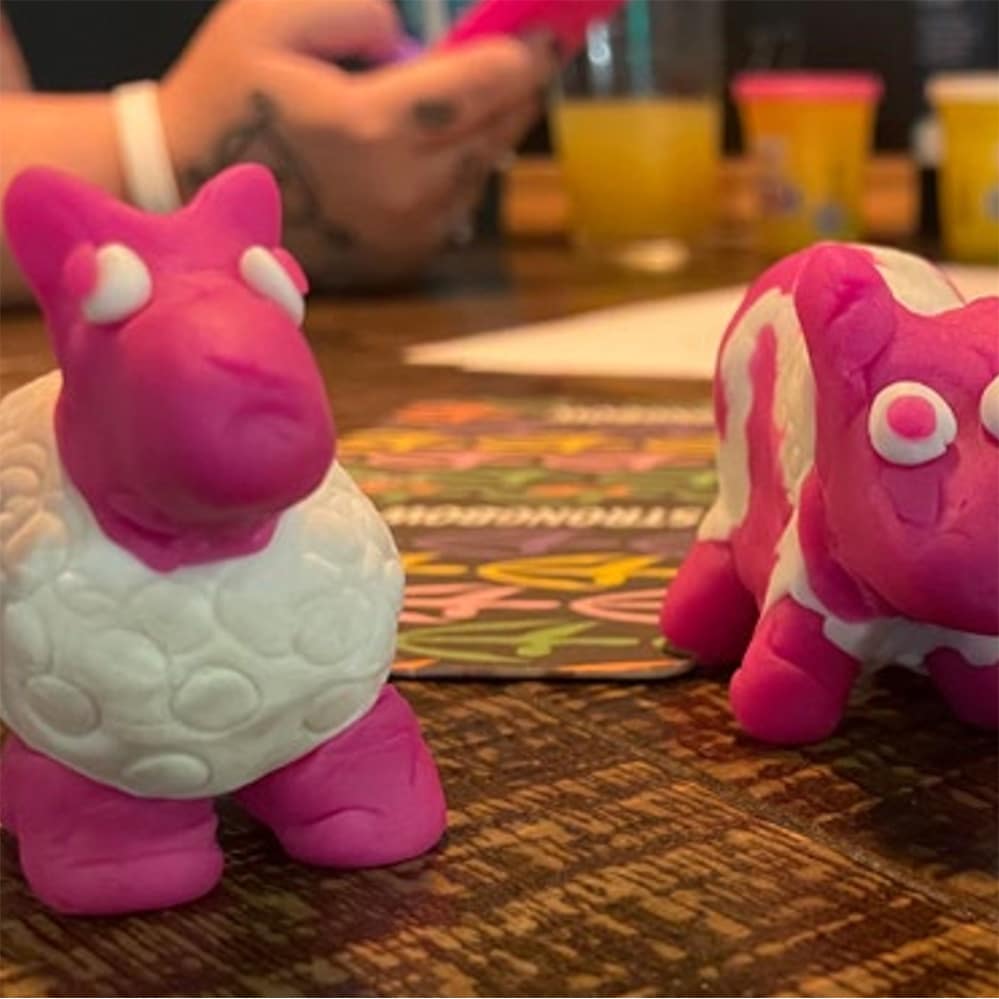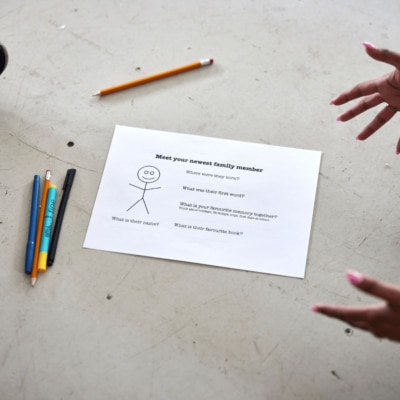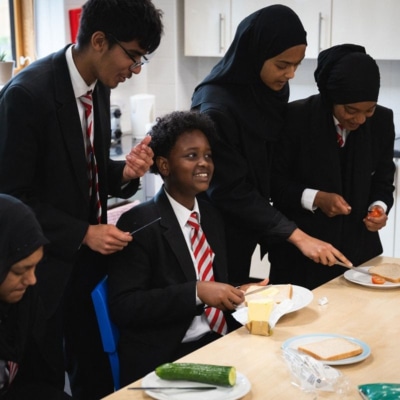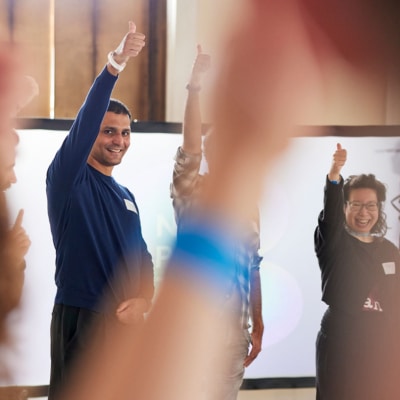Reflecting Community
Posted on March 11th, 2024

This article, written by Coney’s Director Tassos Stevens, was originally published by The National Centre for Academic and Cultural Exchange in ‘Careful Collaborations: Ethics and Care in Cultural Knowledge Exchange and Trans-Disciplinary Research’ in January 2024. Read the full publication here.
I’m one of Coney, a charity making all kinds of play to spark change. I spent three months this autumn hanging out in Gloucester, in the ward of Matson, Robinswood and White City; there at the invitation of the remarkable GL4, a creative arts company run by, with and for local people. I had the opportunity to explore how best to adapt an existing approach of Coney’s to land in a community. I was lucky then to be landing in ‘MatsWood City’ — I accidentally shortened the name of the ward into less of a mouthful, and it ended up sticking 🙂 — because of the wisdom and experience of people working in the network of community organisations flourishing there.
Before landing, I’d read widely on community organising and building, mutual aid, and asset-based community development practice (ABCD) before later meeting local experts in Matson. There are two key principles in this practice which help define the ethics in play, as well as being intensely pragmatic.
The first principle is to start where local people are, with what they want to do, and what they can do by themselves. The pragmatism here is perhaps because if any change is going to happen meaningfully and sustainably, it’s only possible with the passion and motivation of local people, insiders to the community. And ethically, any direction for change can only be set by and with the community.
This also means in practice that you have to start by listening, and paying attention, hanging out. But in order to hang out, you need an invitation to justify your presence, and a reason: otherwise why will people want to talk with you? The existing approach in Coney’s practice sets out to make a quiz about the community. But as I am neither a local nor an insider — ABCD has the excellent term alongsider — I have to ask for help in writing the quiz from and with conversations with local people, who have authentic expertise in what’s local. This leads into this ice-breaker:
Excuse me, I have a rather peculiar question. I’m researching a quiz about this place, but the problem is that I am not from this place. I guess that you might know quite a bit more than me, so if I were to ask you, what question would YOU set for a quiz about here?
The very first time I asked this of a stranger, a security guard at a metro station in Gateshead, he grinned and gave me a cheeky quiz question off the bat, but then we spoke for 90 minutes about his experience and views of the area, an incredibly rich perspective that I couldn’t have learnt any other way.
The quiz is written in a multiple-choice format, a key decision which means that questions don’t have to be trivia or with a fact as a ‘right’ answer, you can co-write a question about someone you’ve met (co-written with them) about their opinion on a local issue. The multiple-choice also means that everyone playing the quiz later can make a guess to the wrong answer, and the best ‘wrong answers’ will also help spark what you really want: for teams to have the kind of delightfully hot discussion that only comes from a group of friends and strangers trying to answer a quiz question.
The second key principle in community practice is that it’s asset-based. So rather than focus on the deficits and what’s missing, you aim to illuminate the assets, resources and strengths that already exist, because pragmatically this is what people can build with. It helps hold an ethical space which is generative and creative, rather than the dull thud of judgement. This complements a key principle of Coney’s ethos: the principle of loveliness, alongside principles of adventure and curiosity. The principle of loveliness here means a lens in your conversations always to be looking for what is distinctive and special, what is it that only this person does or knows. It’s open, non-judgmental and curious, making for a kind of loving attention that itself can have impact.
One telling moment for me was when I first ran the MatsWood City quiz in a pub in Robinswood, and a couple of male regulars joined a team. In the preamble, people were talking about a vicious Tiktok series on ‘worst neighbourhoods in the world’ which had just featured Matson. It was hurtful. How would you feel about a hatchet-job on the place where you feel you belong? What kind of self-fulfilling narrative does this seed?
Later in the quiz I had to cover some context, and improvised about how genuinely inspiring I’d found the community in MatsWood City, an incredible spirit of solidarity and resilience nurtured by the array of community-led organisations. One of the regulars melted: ‘Thank you, that means a lot’.
I’m slightly obsessed with what I call ‘good questions’, simply the kind of question which make you go ‘that’s a good question’ (a common response to the ice-breaker). They’re good because they are distinctive and may land at an angle, provoking you to respond in a way you have perhaps never thought before. And they’re good questions because they’re open, no agenda for the questioner but curiosity, no wrong way to answer them but what you genuinely hold. I think one power of a good question is that it gives people space to reflect and see new things, so that in themselves they feel seen with loving attention.
I’m learning that the quiz as an act of community reflection may help provoke people to think and talk more diversely and specifically about their community and what matters to them. I’m continuing to hang out in MatsWood City, and excited for what happens next.
… and if you’re wondering about the picture of the playdo sheep: one lovely and peculiar feature of Matson is a flock of sheep that roams freely through the gardens and greenspaces of the neighbourhood. Most local people are proud of the sheep, and they even feature on the welcome sign. So for the quiz, as an ambient creative challenge, each team was given playdo to make sheep, the best sheep – pictured here – scoring a lot of points.





